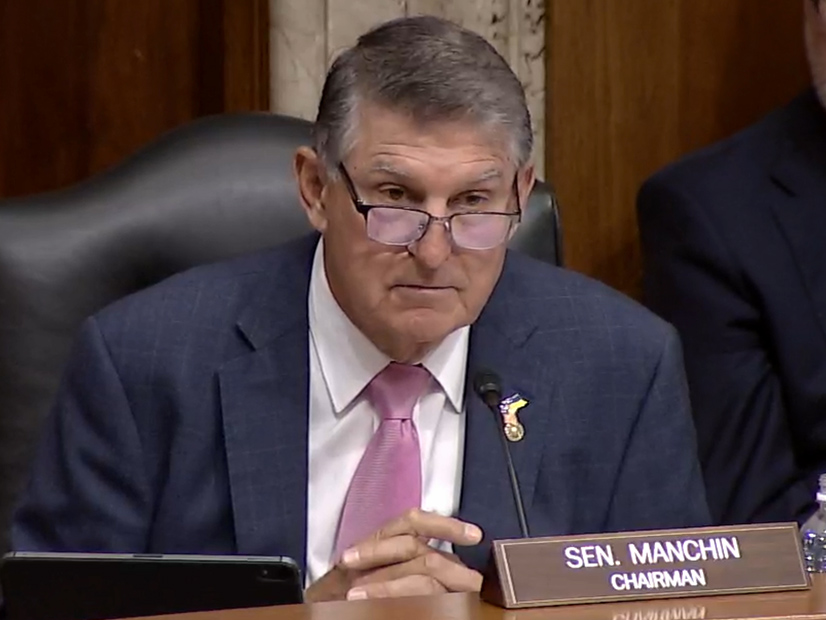Testifying before the Senate Energy and Natural Resources Committee on Thursday, NERC CEO Jim Robb warned that operating the electric grid “ever closer to the edge” by relying on weather-dependent renewables will likely lead to “more frequent and more serious disruptions.”
Thursday’s hearing focused on the reliability and resiliency of electric service in North America, and attendees often pointed to NERC’s Long-Term Reliability Assessment, released last year, to illustrate their concerns.
The LTRA described most of the continent as at either high or elevated risk of energy shortfalls over the next decade, explicitly tying the shortages to the replacement of conventional generation with variable resources such as wind and solar power. (See NERC Warns of Ongoing Extreme Weather Risks.)
In light of the report, members took frequent potshots at the EPA’s recently proposed CO2 emission standards for power plants, which some industry groups have criticized for potentially accelerating the retirement of coal power plants without equally reliable replacements. (See Regan: New EPA Standards Designed to not Jeopardize Grid Reliability.)
Republicans, including ranking member John Barrasso (R-Wyo.), also decried what he called the Biden administration’s “reckless policies” that “are creating a reliability crisis.”
Chair Joe Manchin (D-W.Va.) attempted to draw Robb on the subject, asking him “how frustrating is it to you, being the head of NERC, knowing that you’re giving, basically, only the facts — you’re not picking winners or losers, you’re not getting involved in … the fight that goes on [over climate policy], basically just dealing with the facts of how you’re supposed to deliver the power, and no one pays attention?”
Robb’s reply was succinct: “It’s frustrating.”
Manchin brought up the SPUR Act, a bill introduced by Barrasso that would require NERC to comment on proposed EPA regulations and require the agency to “address NERC’s comments before [issuing] a final rule.” He framed the proposal as a way to force the EPA to account for the real-world impacts of its decisions.
“NERC and FERC [are] doing their job, but there’s no teeth to it whatsoever,” Manchin said. “Somehow you have to have reliability … be the first and foremost … to protect [people’s] livelihoods and lives.”
Robb’s fellow witness Manu Asthana, CEO of PJM, called the SPUR Act “a great idea,” adding that, “I think, actually, we can go further.” In his opening statement, Asthana agreed with Robb that the “rapid rate” of dispatchable generation retirement, with replacement renewable generation coming online more slowly than anticipated, has the potential to cause “increasing resource adequacy risk.”
King Says Transition Coming Late
Some committee members pushed back against the idea of slowing down the transition to renewable energy. Sen. Angus King (I-Maine) drew attention to the “irony and paradox” of witnesses and committee members calling the grid transformation “premature” and demanding the retention of conventional generation. Pointing out that the American Society of Civil Engineers attributes severe weather as the primary cause of customer outages, he argued that the reliability risks are as bad as they are because coal and natural gas generation was retained too long in the first place.
“We’re talking about outages that are caused predominantly by severe weather, which is a result of climate change,” King said. “So, the question is — [is the transition] premature? We should have been making this transition years ago, and we’re trying to make it in a hurry, because we are in a crisis situation.”
Robb acknowledged that the question of balancing the related harms of retaining carbon-emitting generation and moving to intermittent renewables is “a very tough policy problem,” but he stopped short of offering a solution, calling it a “question of balance that policymakers need to figure out.”
King pressed Robb for a timeframe in which older generation could be retired, but Robb would only say it should not be done until suitable replacements — such as renewable facilities with sufficient storage capacity to ride out significant grid disturbances — are available.
“The question is how fast can we develop the battery or the storage technology, whatever it is … versus the contribution to the severe weather events” of thermal generation, King said. “We’re talking [in] this hearing as if the only risk is lack of capacity, when in reality the risk is severe weather events.”




